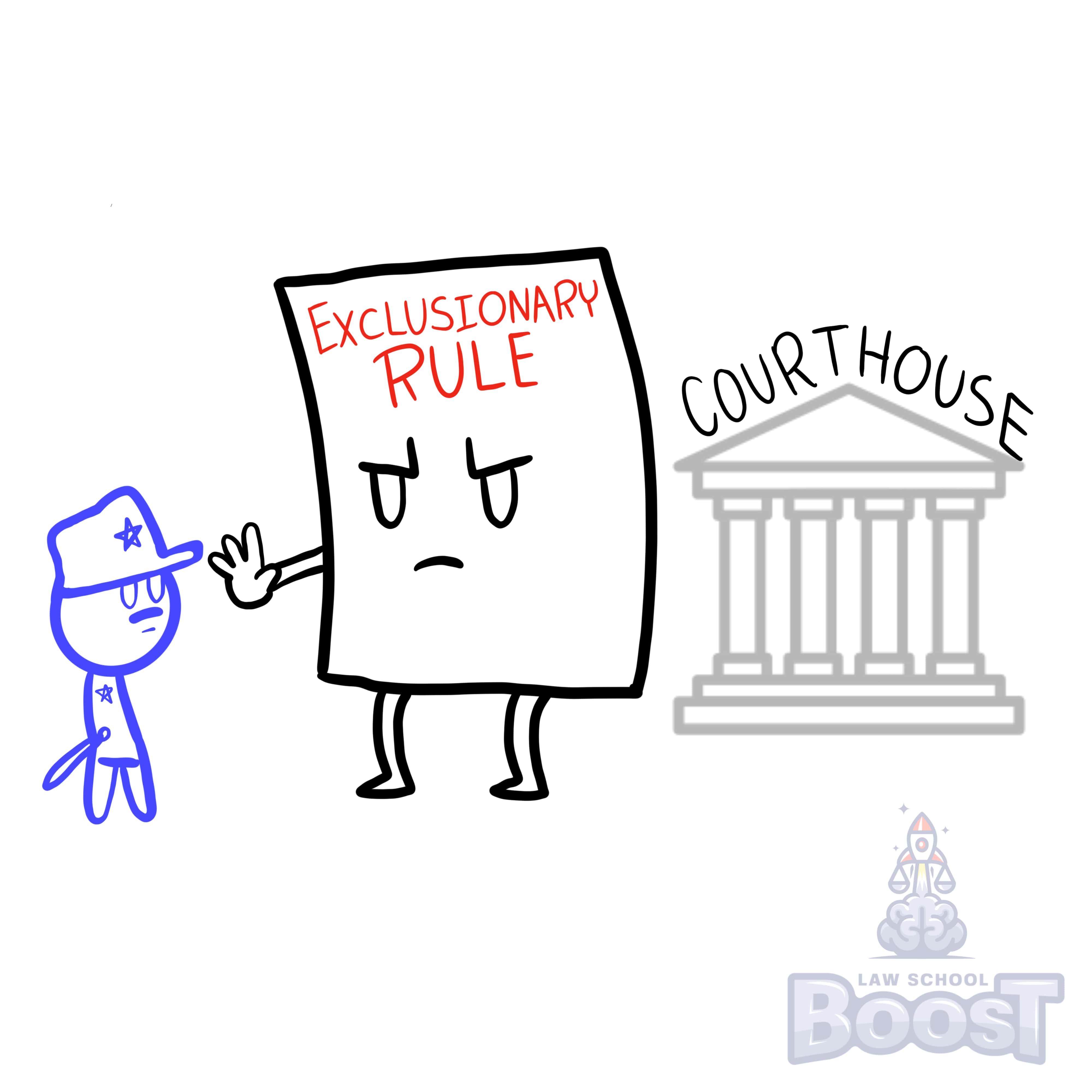🫥
Criminal Procedure • Exclusionary Rule
CRIMPRO#001
Legal Definition
The exclusionary rule is judge-made doctrine that states evidence obtained in violation of the 4th, 5th, or 6th Amendments is excluded in the criminal prosecution.
Plain English Explanation
Constitutional rights are sacred. Though there are many creative ways for the government to collect evidence against a criminal defendant, the courts will not allow evidence to be heard if it was gathered by violating the defendant's 4th, 5th, or 6th Amendment rights. Such evidence is excluded.
Hypothetical
Hypo 1: Police suspect Bob is counterfeiting baseball cards, selling them on eBay, and transporting them through the postal system. Rather than get a warrant to search Bob's house, Police talk to Bob's neighbor who points out that Bob is never home at 4:00 pm and he keeps a hidden key under a fake rock. Police take the hint, find the key, and enter Bob's house where they find a pile of counterfeit baseball cards, envelopes, stamps, and a computer open to a website entitled, "How to Defraud People on eBay by Mailing Counterfeit Baseball Cards." Result: All of this evidence would have been incredibly useful in prosecuting Bob, had the police gotten a warrant. By not getting a warrant, their search of Bob's home violated Bob's 4th Amendment rights and, thus, are barred under the exclusionary rule.
Hypo 2: Same facts as Hypo 1:, except instead of the police entering Bob's house, his neighbor decides to break in after the police speak to him. After the neighbor breaks in, he photographs all the evidence and sends it to police. Result: The exclusionary rule doesn't apply here. Why? Because The Constitution protects people from abuses by the government. In other words, because Bob's neighbor is not an agent of the government, their actions—though wrong—do not prevent the government from making use of the evidence discovered. We'll cover this more in other cards.
Hypo 2: Same facts as Hypo 1:, except instead of the police entering Bob's house, his neighbor decides to break in after the police speak to him. After the neighbor breaks in, he photographs all the evidence and sends it to police. Result: The exclusionary rule doesn't apply here. Why? Because The Constitution protects people from abuses by the government. In other words, because Bob's neighbor is not an agent of the government, their actions—though wrong—do not prevent the government from making use of the evidence discovered. We'll cover this more in other cards.
Visual Aids

Related Concepts
What are special needs search exceptions to the warrant requirement?
What are the 5 exceptions to the fruit of the poisonous tree exclusionary rule?
What are the exceptions to the warrant requirement?
What are the Terry stop and frisk rules?
What are the wiretapping and eavesdropping exceptions to the warrant requirement?
What does the 4th Amendment protect against?
What is a facially valid warrant?
What is the automobile exception to the warrant requirement?
What is the consent exception to the warrant requirement?
What is the evanescent evidence, and hot pursuit exception to the warrant requirement?
What is the fruit of the poisonous tree doctrine?
What is the good faith defense to an invalid warrant?
What is the harmless error rule?
What is the plain view exception to the warrant requirement?
What is the search incident to arrest exception to the warrant requirement?
What is the stop and frisk exception to the warrant requirement?
When are police checkpoints valid?
When are police excused from knocking and announcing?
When does a person have automatic standing and a reasonable expectation of privacy in a 4th Amendment violation claim?
When do individuals have no standing and no reasonable expectation of privacy in a 4th Amendment violation claim?
When is a warrant based on a tip by an informant sufficient?
When is the exclusionary rule inapplicable?


